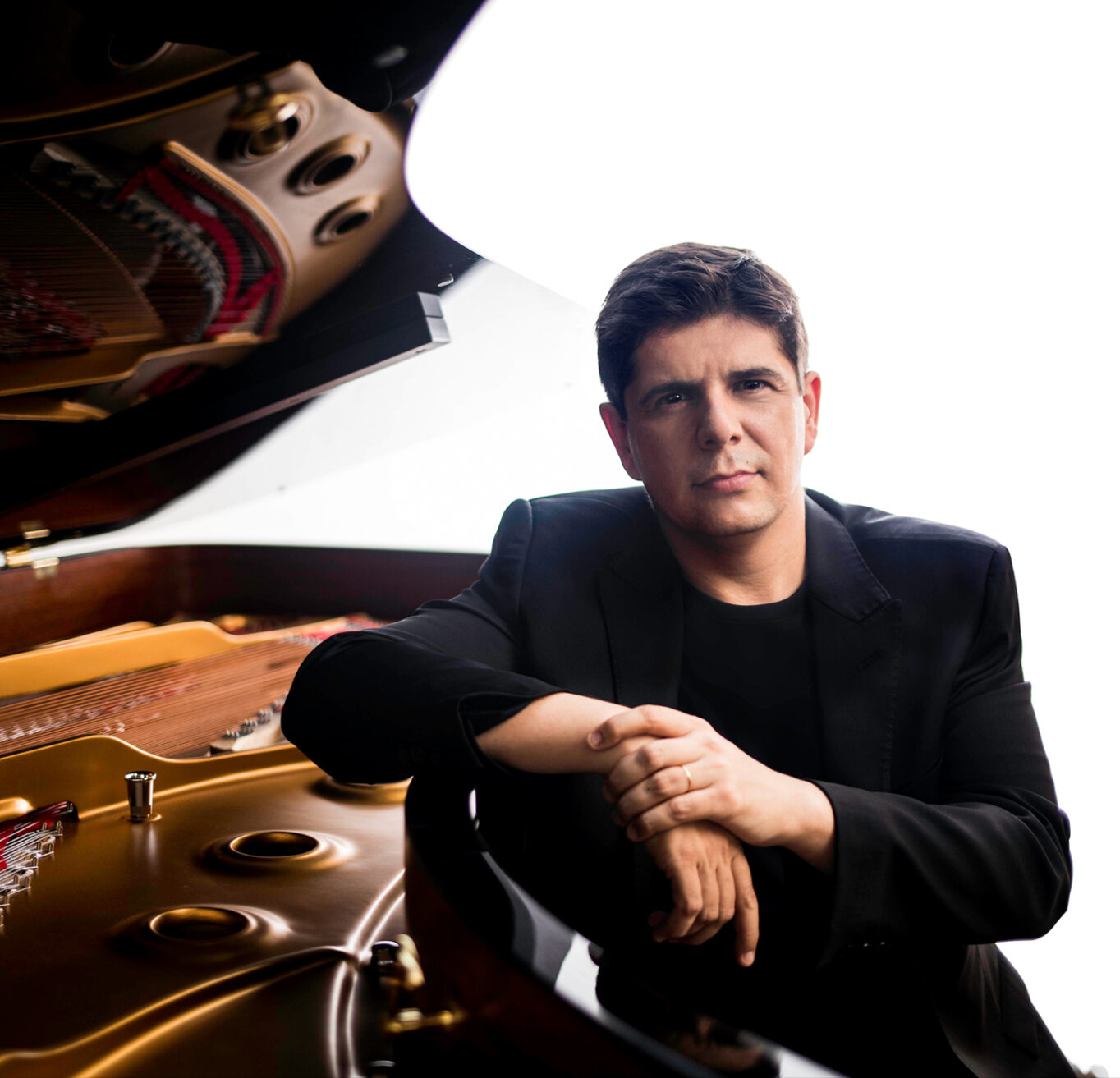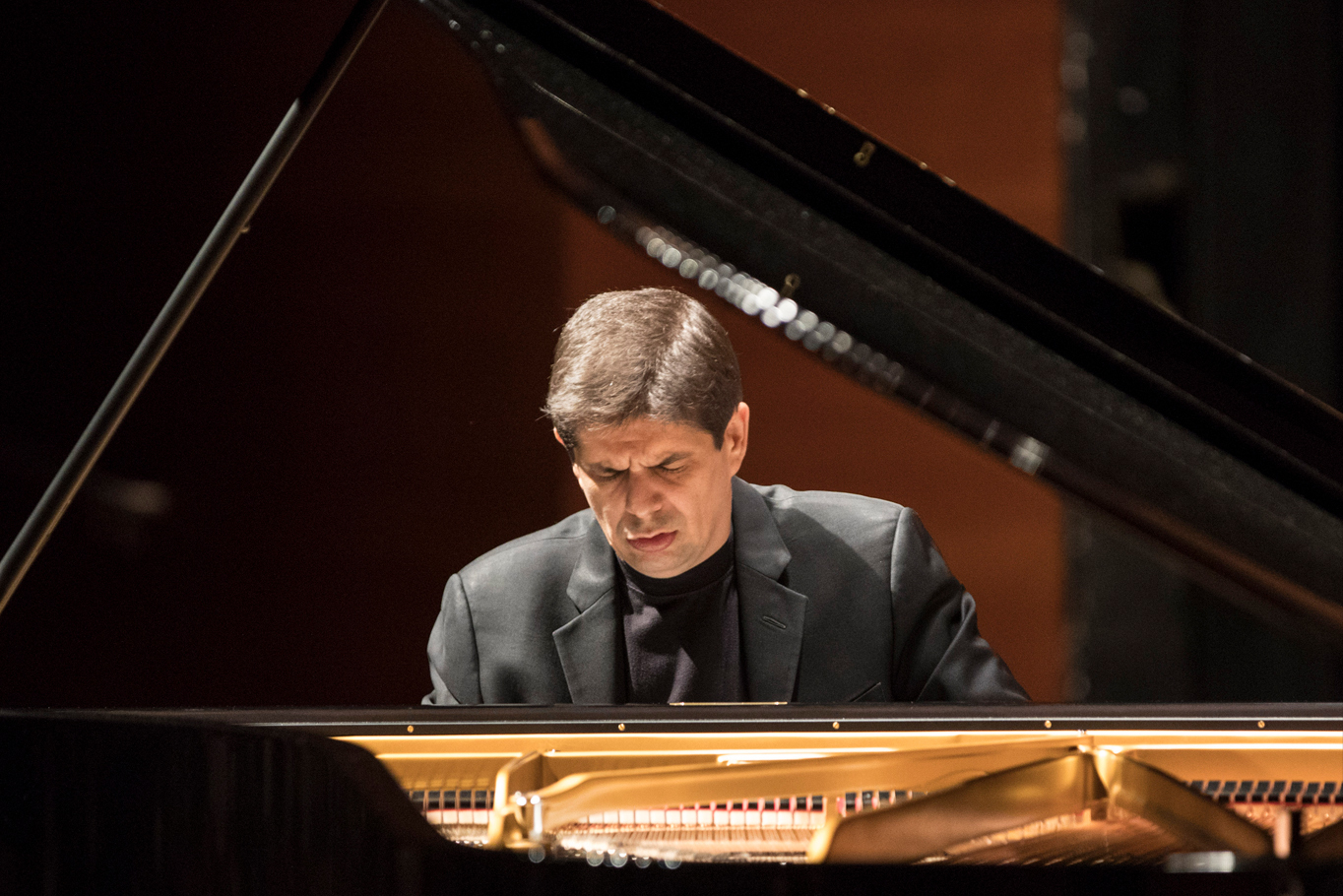
Javier Perianes on Beethoven’s most mystical, magical piano concerto
04 July, 2023
The Spanish pianist returns to the Sydney Symphony in July for the next instalment in a multi-year Beethoven concerto cycle with Simone Young. Here he discusses Beethoven’s Fourth Piano Concerto and what makes his artistic relationship with Simone so special.
By Hugh Robertson
Beethoven’s five Piano Concertos occupy rarefied air in the pantheon. You could call them the Mount Rushmore of the genre, except you would have to leave one out.
These works feature prominently in the repertoire of most of the world’s great pianists, and it is rare to find a season of orchestral concerts without at least one somewhere in the mix. But it is rarer still to have the chance to hear all five concertos performed by the same soloist, which is what makes the Sydney Symphony’s ongoing cycle with Chief Conductor Simone Young and Spanish pianist Javier Perianes so special: one of the signature programs of Simone’s tenure, Sydney gets to hear one concerto each year, for five consecutive years.
The first of these concerts took place in 2022, with Beethoven’s Third Piano Concerto, to great acclaim. Perianes "made the piano sing and glitter with alert, polished brilliance," said the Sydney Morning Herald. Now Perianes returns in July to perform the Fourth Piano Concerto, in an all-Beethoven concert that also features the radiant, exuberant Pastoral Symphony (No.6) and the world premiere of a work by Australian composer Mary Finsterer, chosen especially for this program by Simone.
As anyone who went to last year’s concerts can attest, Perianes is a superb musician. His slew of awards reinforce, that, whether won at piano competitions or awarded for his studio recordings. He is an icon in his native Spain, awarded the National Music Prize in 2012 by the Ministry of Culture of Spain. And further afield he was named Artist of the Year at the International Classical Music Awards in 2019.
Wherever he goes, the critics are unanimous: “A player of great elegance and understated flamboyance,” said The Guardian; “Perianes is fundamentally an elegant pianist, one who lets the music speak for itself,” said Gramophone; “Perianes approaches Beethoven with a freshness and individuality that is immediately engaging,” wrote BBC Music Magazine.
Among Beethoven’s concertos, Perianes says that it is the Fourth that really stands out.
“I think it changed everything,” he says enthusiastically. “No.1 and No.2 still owe some of their style to Mozart, even Haydn. With No.3, we're starting to see Beethoven make a big statement, but still, there is some Mozart and Haydn in there. But in No.4, curiously, is the first piano concerto that starts the piano by itself. There is no introduction. And No.4, this magic, absolutely outstanding beginning with that G major chord following after that small introduction by the piano, by that B major chord from the orchestra…it is probably the most original one among all of them.
“I think this is probably the most mystical, magical piano concerto by Beethoven.”
The Fourth Piano Concerto contradicts so much of the way Beethoven is thought of in popular culture. We imagine him as the furious, irascible old man driven increasingly mad and aggressive by his deafness, writing louder and more dramatic music simply so he could hear it. But although written after his deafness had began to take its toll, the Fourth is incredibly delicate, exquisitely light, the piano behaving more like just another instrument in the orchestra than the Herculean hero dominating proceedings. Though as Perianes points out, that is very much in keeping with some of Beethoven’s others works from this period – including the other work on this program, the Pastoral Symphony.
“The Fourth is like an oasis in the middle of a tempest,” says Perianes. “You have the Third, in C minor, with a lot of drama and a lot of heroic motifs, and then of course the fifth concerto is the ‘Emperor.
“But [the Fourth] has an almost mystical approach. It’s something very special. And that is one of the reasons because it makes this concerto quite peculiar and special, and for me, one of the best ones.
“Curiously enough, you have other pieces like this. I was thinking about the Pastoral Symphony, No.6. Symphony No.7 has that big opening, that sforzando burst. But the Pastoral is so soft, and so gentle. And Beethoven was able to reflect all those different landscapes.”

Perianes is especially excited to be performing this work with Simone Young again.
“I know the way she approaches the concerto, and I know how much she loves this concerto,” he says, warmly. “We have played it together several times. But every concert is another chance, at least for me, to keep learning. Simone is completely open to everything: new ideas, new approaches.
“She has made a great career as a conductor in Hamburg, as a guest conductor conducting all the big orchestras in the world. We're talking about a top-class conductor, also a great friend, that I really like. So it's very easy. We share a common language, but a common approach of being flexible with each other.”
And it’s not just working with Simone that Perianes is looking forward to. As he knows from his 2022 performances in Sydney, absolutely everything is in place for a world-class performance.
“You have all the elements in your hands,” he says enthusiastically. “The acoustic of the Sydney Opera House now is wonderful, it's fantastic. The piano is great, the orchestra is fantastic, the conductor is a world-class conductor. The only problem with when you have all these elements together is that you don't have any excuse if something goes wrong,” he says with a laugh.
All of that familiarity, that ease and comfort built up between Javier, Simone and the Orchestra, sets a perfect foundation for the performances to really soar.
“Everything you do during rehearsals is to minimise any misunderstanding between the conductor, the orchestra and you. And then, if you have done a great job during the rehearsals, what you have to aspire when you're playing in a live concert is to have freedom.
“And when someone feels free, it means that he's free to do whatever he wants to do at that moment. That spontaneity, that's the magic of the live concert.”

